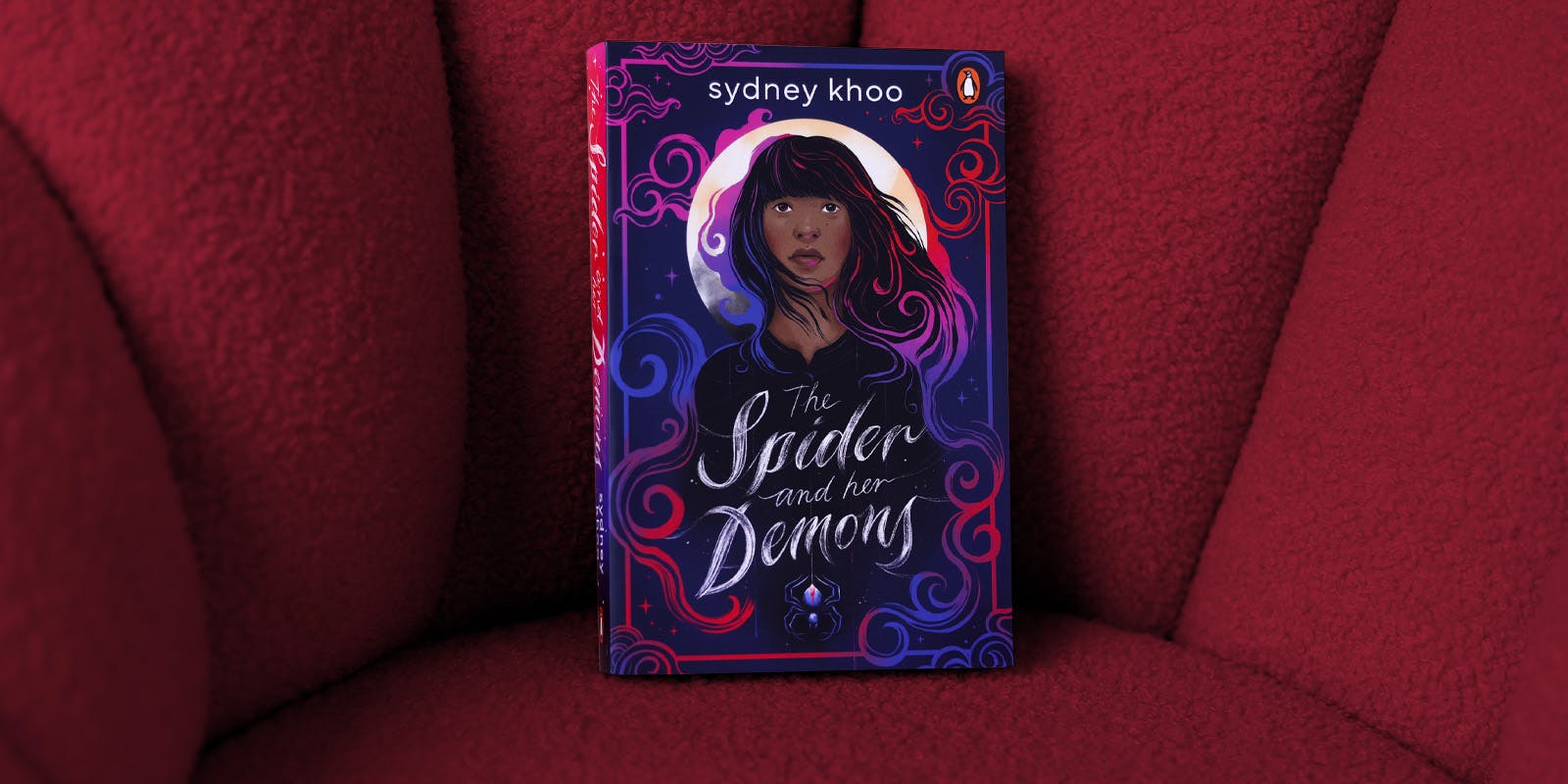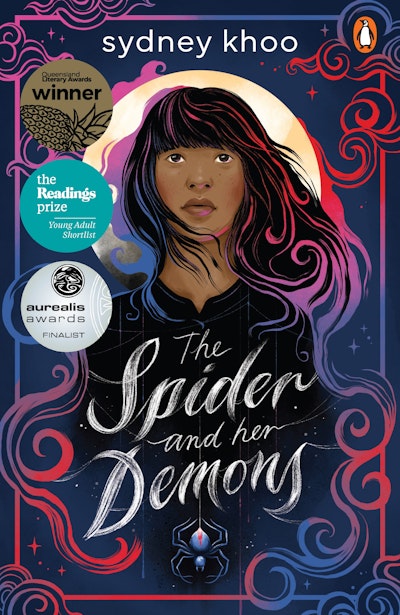Learn more about how the Write It fellowship led to sydney khoo’s debut novel, The Spider and Her Demons.
In 2016, Marvel was looking for its next Spider-Man.
At the time, media representation of Asian characters was sparse, and sydney khoo, who was undertaking a Master of Creative Writing, decided that they would take matters into their own hands. ‘I loved the idea of a Chinese Peter Parker growing up in Chinatown, New York City, above a dumpling shop owned by his Aunt Mei,’ says sydney. So they wrote it.
When the opportunity to submit to Penguin Random House’s Write It Fellowship arose, a friend encouraged sydney to submit something. ‘I remember saying, “I haven’t finished anything good enough to fit that bill.” And she told me, “Just try it!”’
When sydney was shortlisted for what would become their debut novel, The Spider and Her Demons, it felt like a happy surprise. Shortly after the excitement wore off, they realised that they’d have to rush to finish the rest of the manuscript. ‘I had two weeks before the deadline to finish writing the rest.’
Though sydney felt like the first draft was sloppy, editor Michelle Madden, who reviewed fellowship submissions, had a very different reaction.
Looking back at old emails, Michelle can see her initial praise for sydney’s submission: ‘I read this one lucky last,’ she had written, ‘and OMG it is really good. It’s YA and the voice is great . . . it’s a yes for this one.’
What is the Write It Fellowship?
The fellowship that sydney applied for, The Write It fellowship, was launched in 2018 to find, nurture and develop unpublished authors from across all genres with a focus on under-represented sections of our community. From LGBTQIA+ to linguistically diverse authors, the fellowship aspires to foster stories of all kinds.
While the fellowship offers recipients mentorship by PRH editors, it does not guarantee publication.
However, as in sydney’s case, it is possible. By working with editors fellows can develop their work to a publishing-ready level – which, for sydney, resulted in a book deal and publication.
Starting, stopping and starting again
From her first read-through, Michelle knew that sydney’s book had potential, but there was plenty of work required to get the manuscript up to the standards required for publication.
While Michelle was feeling inspired, however,sydney began to have doubts. Everyone kept telling them that the story would get published, but instead of helping sydney, this only made them feel more overwhelmed. ‘It put so much pressure on me, and I just couldn’t deal with it. So I just completely gave up.’ says sydney. ‘And then COVID hit, and I let the fellowship lapse.’
A year later, Michelle followed up to tell sydney that she would still look over their writing – if that’s what they still wanted. ‘It took me about three months to get over the guilt,’ says sydney, ‘and then I thought, well I’ve already screwed up my chance, so I might as well start again from scratch and see how that goes.’
Luckily, sydney had built the entire world of The Spider and Her Demons in their head, so while re-writing the whole manuscript wasn’t easy – or at all recommended, Michelle notes – it was possible. And, importantly for sydney, knowing that it might not go anywhere removed pressure from the equation and allowed them to finish the manuscript, something they had struggled with the first time around.
Of course, even with a new manuscript, the process wasn’t over, and sydney and Michelle continued working on edits for months. While sydney had encyclopaedic knowledge of the lore and setting they were operating within, Michelle helped refine character development and ensure that everything fit together structurally. ‘It’s more of a collaboration than simply saying “you missed a comma here,” which is the first thing people imagine,’ says Michelle.
Reader reactions to The Spider and Her Demons
In addition to a happy editor and author, the book has sparked delight for readers across Australia. In addition to the fantastical elements and familiarity of the Australian setting, readers especially relate to the relationship between the book’s main character Zhi and her stern Aunt Mei.
For Michelle, this is no surprise. It’s also her favourite thing about the book. ‘I love the core relationship between Zhi and Aunt Mei and how complex and beautiful it is,’ says the editor. ‘Despite the themes of intergenerational trauma, this is ultimately one of the most beautiful parent-child relationships I’ve read in ages.’
For sydney, who admits they wrote Aunt Mei’s character with a bit of resentment, it’s surprising how relatable people find this dynamic. In the same vein, they didn’t realise how many Malaysian Chinese readers would read this book. ‘I didn’t realise that so many Malaysian Chinese people would be reading it, so it was like a happy little bonus that it resonated with them,’ says sydney.
‘I wrote this book to make peace with my own demons and I hope anyone who has similar demons to me is able to make peace with theirs from reading this book.’













